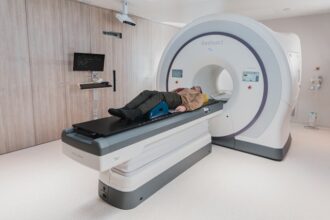Memory declines with age, often marked by a diminished ability to recall personal experiences. Traditionally associated with the degeneration of dendritic spines—critical elements of synaptic connections in the brain—this process has been reevaluated in light of new research. A study published in Science Advances, conducted by teams from the University of Alabama at Birmingham and Rush University Medical Center in Chicago, proposes that retaining memories from past experiences depends more on the quality rather than the quantity of synaptic connections in older people.
Jeremy Herskowitz, Ph.D., associate professor in the Department of Neurology at UAB and corresponding author of the study, characterizes the findings as a significant departure from established beliefs. For decades, the dominant theory posited that memory decline was primarily due to the loss of dendritic spines, indicating synaptic deterioration. This study reveals that, although synapses diminish with age—a process considered normal from ages 40 to 85—the remaining synapses can compensate for this loss, challenging the previous understanding of memory decline’s mechanics.
The implications of this discovery are particularly promising for the elderly population. Herskowitz explains that the study demonstrates an enduring synaptic plasticity in older individuals, which can still effectively support memory retention. This insight suggests that therapies aimed at remodelling dendritic spines and synapses could significantly enhance memory preservation and cognitive function in ageing individuals or those suffering from memory impairments associated with Alzheimer’s disease.
The Religious Orders Study and the Rush Memory and Aging Project (ROSMAP) at Rush University provided the foundation for this research. This project enrols Catholic nuns, priests, and brothers over the age of 65 who are free from known dementia at enrollment and agree to donate their brains for research post-mortem. The study examined brain samples from 128 ROSMAP participants, with an average age of 90.5 years at death, who had undergone annual cognitive testing covering multiple domains.
In their analysis, Herskowitz and his team stained and photographed thin slices of brain tissue, constructing three-dimensional digital reconstructions of 55,521 dendritic spines across 2,157 neurons. They utilized innovative statistical and machine learning techniques to assess correlations between various spine morphology measurements and multiple indicators of brain function, age, and Alzheimer’s disease pathology. Their findings highlighted that larger dendritic spine head diameters in the temporal cortex were associated with better episodic memory performance, underscoring the importance of synaptic strength over quantity in memory preservation in old age.
This research, which spanned over two and a half years and continued through the COVID-19 pandemic under strict conditions, opens new pathways for therapeutic interventions focusing on enhancing synaptic strength and spine head diameter. These approaches could potentially offer more significant benefits for older adults, particularly those in the preclinical phases of Alzheimer’s disease, emphasizing the fundamental role of synapses in brain function and the dynamic process of synaptic formation and elimination as part of brain plasticity.
More information: Courtney K. Walker et al, Dendritic spine head diameter predicts episodic memory performance in older adults, Science Advances. DOI: 10.1126/sciadv.adn5181
Journal information: Science Advances Provided by University of Alabama at Birmingham








